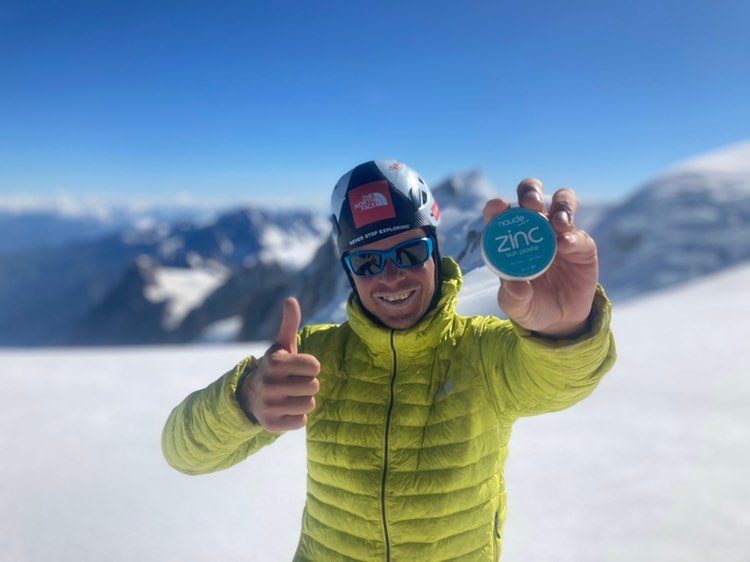Nahahooldus
SUN PROTECTION
WHY MINERAL?
With the sunnier weathers approaching, protecting your skin should be of top priority while you’re out and about during the heat of the summer. Most exposed and vulnerable to harmful UV rays are all who spend extended periods of time outside – playing, sporting, hiking. Sunscreen provides protection from UV radiation and is essential in your skin care routine to avoid burns and redness.

Sunscreen is essential not only for beach bums like myself, but for all adventureres and explorers.
In most sunscreens though, chemical filters are responsible for that protection. Chemical sunscreen ingredients—often with names ending in -salate or -benzone—can give a better look and feel to skin-care since they tend to sink into skin readily and dry clear. But there’s some evidence that they might disrupt hormones.
Regular contact with harmful substances, for instance when using cosmetic products on the skin may lead to their absorption into the body. The more chemicals that are absorbed the more likely it is that they might impact our health. Studies on the subject have been somewhat inconclusive and have mainly involved rats, not humans. Animal testing itself is unethical and indicates that ingredients can not be safe enough.
Keep in mind that sun-protection does not increase proportionally to an increase in SPF (Sun Protectin Factor). That means that higher SPF number doesn’t necessarily provide better protection. For example, an SPF of 2 absorbs 50% of UV rays, SPF 15 absorbs 93%, and an SPF of 34 absorbs 97% of UV rays.
Physical sunscreens on the other hand can be helpful for anyone with sensitive skin or even repair damaged or dermatitis prone conditions, since they’re less likely to exacerbate irritation and redness. That said, if you do prefer the idea of chemical-free sunscreens, there’s one ingredient to look for – zinc oxide – a mineral that prevents UVA and UVB light from entering skin and doing damage. Zinc oxide is a physical blocker, the only ingredient you need for excellent broad-spectrum protection, says David Hershthal, a professor of dermatology at the University of Miami Miller School of Medicine.
You also want to make sure that the zinc oxide in your sunscreen is uncoated, non-nano, and not micronized. This all means that there are no nano-sized particles entering your body, which many (mineral) sunscreens certainly cannot claim.
At NAUDE we started our skin-care business by making cosmetics for us to use and we still go a long way to produce maximum safety and efficacy for others too! A great zinc based sunscreen leaves your nose a bit whitish but this is rather a good thing. The more coverage – the more UV-rays it reflects back.
Whatever the SPF, you want that layer of sunscreen on your pretty face to be generously thick to offer maximum protection.
Now get out there and enjoy the weather by making a mineral sunscreen your new best summer friend!
